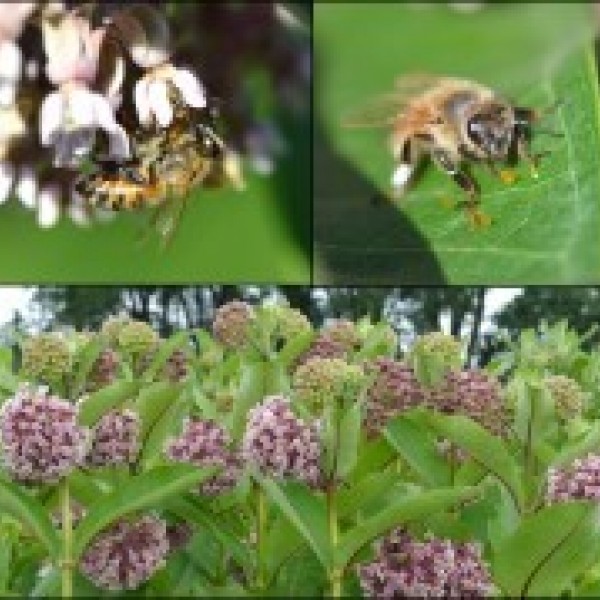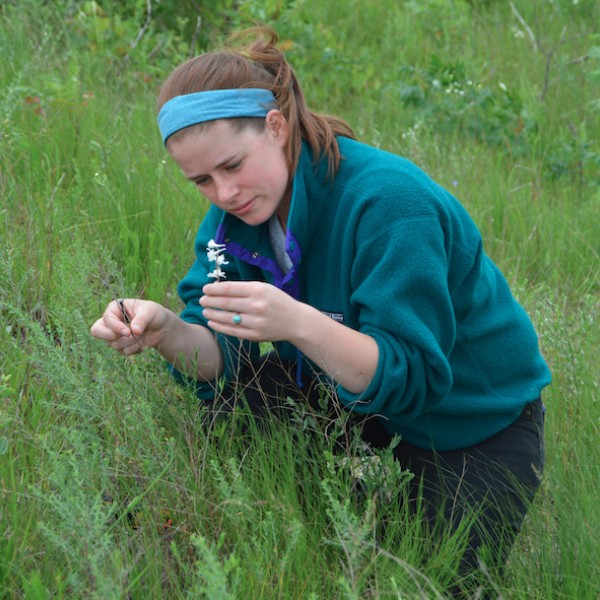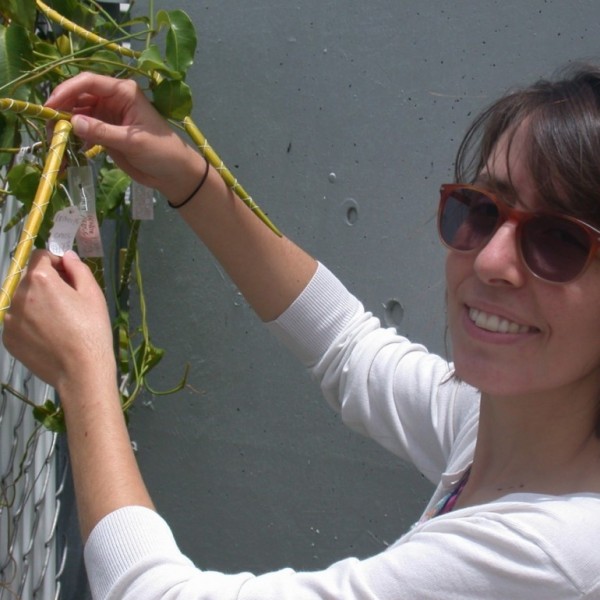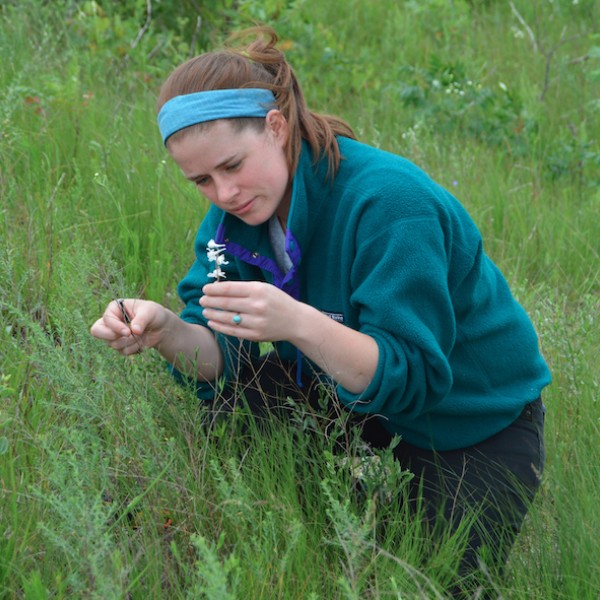
Local adaptation of flowering phenology in common milkweed 2017
Chicago Botanic Garden
Ecology, Reproductive Biology
Local adaptation is a well-documented phenomenon in plants, whereby populations evolve specialization to local environmental conditions, such as climate. The timing of life cycle events such as flowering and fruit set, also known as phenology, often displays local adaptation. As many flowering plants are pollinated by animals, aligning flowering time with pollinator emergence and activity is essential for successful fertilization, fruit set, and seed production. In the summer of 2014 a common garden was established to compare traits of three populations of common milkweed (Asclepias syriaca) sourced from along a climatic gradient in the Midwest U.S. Phenological observations from 2016 found significant differences in flowering onset and length of the flowering window among populations. Northern populations flowered about 1 week earlier but for 2-10 days less than southern populations. Fruit counts at the end of the season found the local population produced significantly more pods than either the non-local northern or southern population. These results suggest the local population may be locally adapted to the insect pollinator community of Illinois, resulting in increased reproductive fitness. However, the direct impact of phenological variation on pollinator visitation must be documented to confirm causation. Increased understanding of geographic variation in plant traits such as phenology informs seed transfer zones, which are used to specify the region from which appropriately adapted plant material should be sourced for a restoration project.
The REU intern will continue phenological monitoring of the common garden as well as carry out pollinator observations throughout the summer to quantify the effect of flowering timing and duration on pollinator visitation. Fruit initiation and maturation will be tracked to quantify the impact on reproductive success. The intern will primarily work outdoors, but still on site at the Chicago Botanic Garden with easy access to labs and other facilities. Interest and/or experience in entomology, plant-pollinator interactions, reproductive biology, and/or plant phenology preferred.


